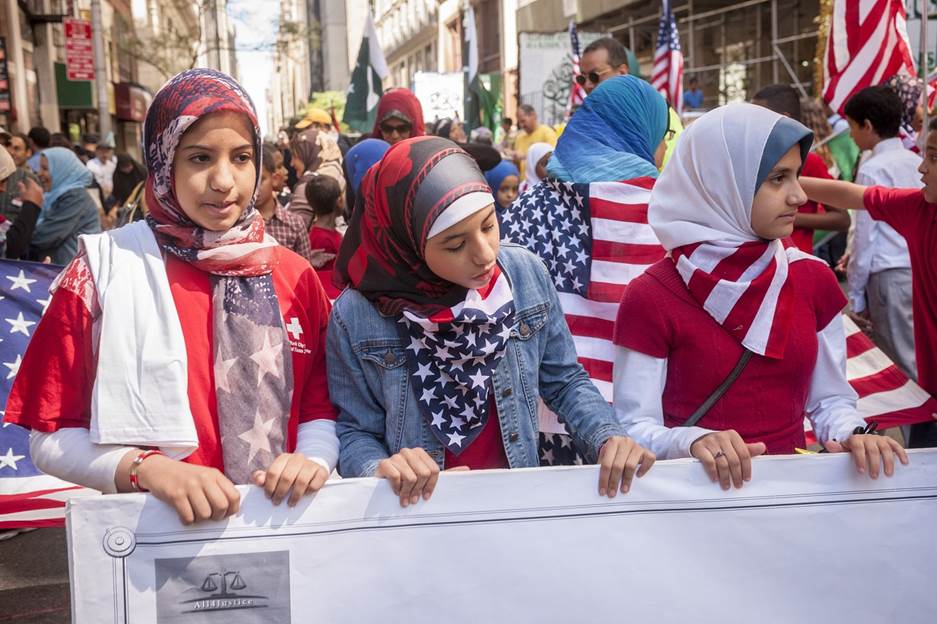Let Islamic Reform Start in America
By Salam Al-Marayati and Maher Hathout
US

Courtesy The Wall Street Journal
‘Muslim communities in the West,” wrote Graham Fuller and Ian Lesser in 1995 (“The Geopolitics of Islam and the West”), “are more likely to exert influence on their countries and cultures of origin rather than receive influences from them; over time they may have a substantive effect on the perceptions of secularization and minority rights in the Middle East.”
This shift—from the American Muslim community being perceived as foreign and an extension of the Middle East and South Asia to American Muslims instead influencing the East—is the direction in which Muslims are heading. Rampant authoritarianism in the Muslim world and the regression of Muslim religious establishments funded by the same autocratic governments currently make Islamic reform unlikely in the region.
American Muslims can significantly contribute to the revival of Islam and restore human dignity as a central principle of the faith. From despotic regimes to religious extremism, authoritarianism in the Middle East and South Asia has devastated modern Islamic thought over the last few centuries. American Muslims have the freedom and the intellectual capacity to create positive change for Islamic reform.
There are 1.5 billion Muslims in the world, and their religion needs to be relevant for all of their lives. All religions and man-made philosophies go through reform and renewal. We Muslims must liberate ourselves from the shackles of dogmatic traditions such as sectarianism, tribalism, chauvinism and theocracy, all of which contradict Islamic ethics based in the Qur'an and the authenticated traditions of the Prophet Mohammed.
The areas that need immediate attention for Islamic reform are: promoting good governance; protecting the rights of religious minorities and women; and marginalizing the ideology of compulsion. There was more discourse on the penal code and jurisprudence centuries ago, at the peak of Islamic civilization, when leaders focused on the spirit of the Islamic law, rather than on the absolute letter of the law.
For example, within two decades after the Qur'anic revelation was complete in 632, the punishment for theft was suspended by Omar ibn al Khattab, the second successor to the Prophet, when the economy deteriorated and poverty was endemic. In this case, along with many others, a leader suspended a conditional Qur'anic instruction because of new circumstances. That thinking is needed now more than ever.
As is well known, the human rights of women and religious minorities are violated in many Muslim countries. Communities that don’t align with the ideology of the ruling power live in inhumane and oppressive conditions. In 2002 religious police in Saudi Arabia prevented girls from escaping a burning school in Mecca and 15 female students died. These men, members of the Committee for the Promotion of Virtue and the Prevention of Vice, would not allow the girls to escape the building because their head scarves were not completely covering their hair.
This meant a rule trumped the protection of life, one of the five goals of Islamic law, the others being freedom of expression, freedom of religion, rights of family, and rights of property. The five goals are called the Maqaasid of Islamic law and are unanimously accepted by Islamic jurists. The Maqaasid need to be given new life, and this can only happen in an environment of freedom and futuristic thinking. There is no Islamic ethics or morality achieved by religious police.
This Saudi religious police force, similar to those in Iran and throughout South Asia, is a bastardization of a very important Islamic concept—Maslaha, or public interest. The verse in the Qur'an related to Maslaha refers to the promotion of social benefit, defined by the Maqaasid and known by the people as human decency, and the prevention of public harm. Religious policing is rooted in the ideology of compulsion. It is a distortion of that valuable understanding of public interest in any nation’s jurisprudence or executive authority.
American Muslims have looked to the Middle East for religious authority, for spiritual direction and, at times, for political priorities. We must end this practice by declaring that any country or group claiming to be Islamic must uphold the most important principle in Islam, protecting life rather than destroying it.
Any country that kills its own people, persecutes religious minorities and subjugates women is anathema to American Muslims. They can call themselves angels, but they cannot camouflage their evil under a religious veneer. Islam liberated us from the shackles of religious tyranny, and we will struggle to liberate ourselves by declaring our independence from the tyrants and clerics who have usurped authority and religion in claiming sovereignty over Muslims world-wide.
(This article by Dr Al-Marayati and the late Dr Hathout appeared in The Wall Street Journal)

